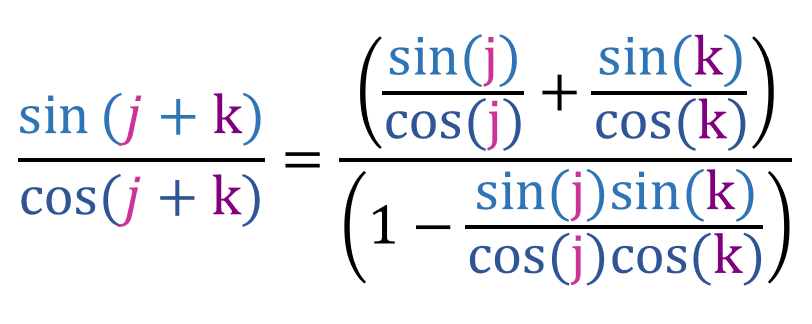We already know that [cos(j - k) = cos(j) * cos(k) - sin(j) * sin(k)], if you don't, then click here. Lets first replace k with -z:

Since [cos(-z) = cos(z)] and [sin(-z) = -sin(z)], we can write the above equation like this:

This is the addition rule for cosine. As for sine, since [cos(x) = sin(x + 90)], we can write:

Lets say [z = g - 90]:

We know that [cos(-x) = cos(x)] and that [-sin(-x) = sin(x)]:

Since [cos(90 - x) = sin(x)] and [sin(90 - x) = cos(x)], we can write:

And that is the addition formula for sine. Now lets divide sin(j + k) by cos(j + k):

Now lets divide both the numerator and the denominator by cos(j)cos(k):

We already know that tan(x) is [sin(x)/cos(x)], so:

And that is the addition formula for tan(x).